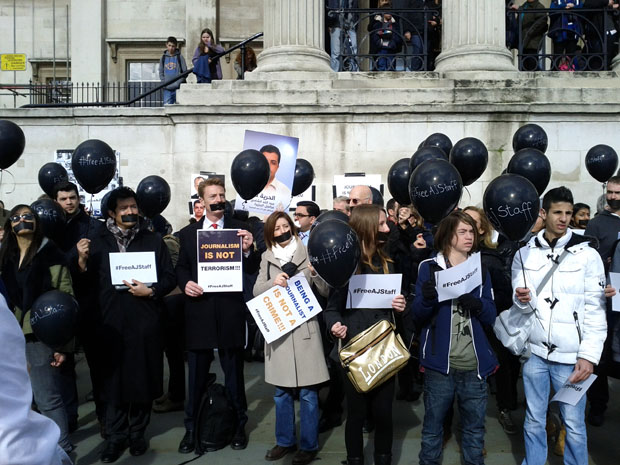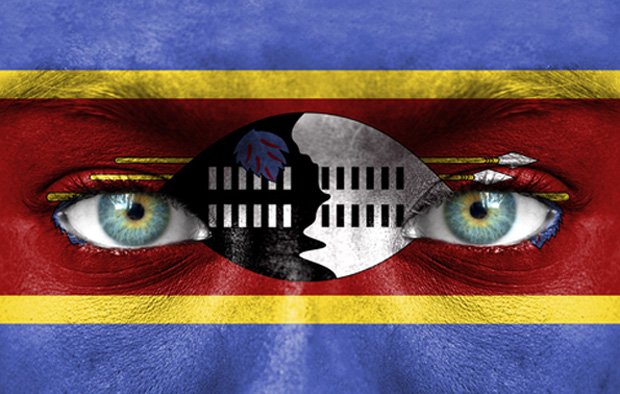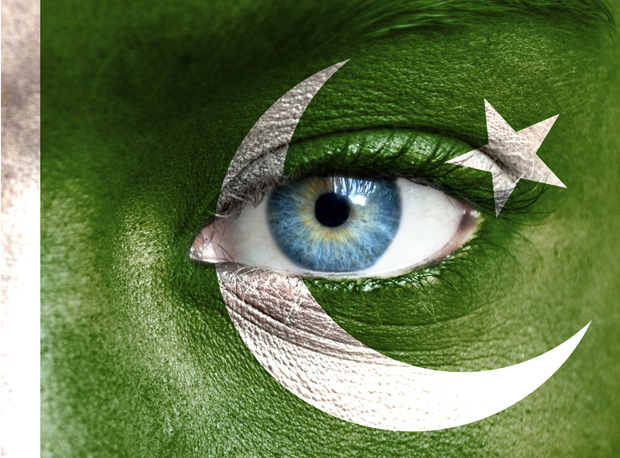2 May 2014 | News

A London protest calling for the release of jailed Al Jazeera journalists in Egypt (Image: Index on Censorship)
Press freedom is at a decade low. Considering just a handful of the events of the past year — from Russian crackdowns on independent media and imprisoned journalists in Egypt, to press in Ukraine being attacked with impunity and government reactions to reporting on mass surveillance in the UK — it is not surprising that Freedom House have come to this conclusion in the latest edition of their annual press freedom report. This serves as a stark reminder that press freedom is a right we need to work continuously and tirelessly to promote, uphold and protect — both to ensure the safety of journalists and to safeguard our collective right to information and ability to hold those in power to account. On the eve of World Press Freedom day, we look back at some of the threats faced by the world’s press in the last 12 months.
1) Journalism is not terrorism…
National security has been used as an excuse to crack down on the press this year. “Freedom of information is too often sacrificed to an overly broad and abusive interpretation of national security needs, marking a disturbing retreat from democratic practices,” say Reporters Without Borders (RSF) in their recently released 2014 Press Freedom Index.
Journalists have faced terrorism and national security-related accusations in places known for their somewhat chequered relationship with press freedom, including Ethiopia and Egypt. However, the US and the UK, which have long prided themselves on respecting and protecting civil liberties, have also come under criticism for using such tactics — especially in connection to the ongoing revelations of government-sponsored mass surveillance.
American authorities have gone after former NSA contractor and whistleblower Edward Snowden, tapped the phones of Associated Press staff, and demanded that journalists, like James Risen, reveal their sources. British authorities, meanwhile, detained David Miranda under the country’s Terrorism Act. Miranda is the partner of Glenn Greenwald, the journalist who broke the mass surveillance story. Authorities also raided the offices of the Guardian — a paper heavily involved in reporting in the Snowden leaks.
2) …but governments still like putting journalists in prison
The Al Jazeera journalists detained in Egypt on terrorism-related charges was one of the biggest stories on attacks on press freedom this year. However, Mohamed Fahmy, Baher Mohamed, Peter Greste and their colleagues are far from the only journalists who will spend World Press Freedom Day behind bars. The latest prison census from the Committee to Protect Journalists (CPJ) put the number of journalists in jail for doing their job at 211 — their second highest figure on record.
In Bahrain, award-winning photographer Ahmed Humaidan was sentenced in March to ten years in prison. In Uzebekistan, Muhammad Bekjanov, editor of opposition paper Erk, is serving a 19-year sentence — which was increased from 15 in 2012, just as he was due to be released. In Turkey, after waiting seven years, Fusün Erdoğan, former general manager of radio station Özgür Radyo, was last November sentenced to life in jail. Just last Friday, Ethiopian authorities arrested prominent political journalist Tesfalem Waldyes and six bloggers and activists.
3) New media is under attack…
As more journalism is being conducted online, blogs, social and other new media are increasingly being targeted in the suppression of press freedom. Almost half of the world’s jailed journalists work for online outlets, according to the CPJ. China — with its massive censorship apparatus — has continued censoring microblogging site Sina Weibo, while also turning its attention to relative newcomer WeChat. In March, it closed down several popular accounts, including that of investigative journalist Luo Changping.
Meanwhile, Turkish Prime Minister Recep Tayyip Erdoğan has publicly all but declared war on social media, at one point calling it the “worst menace to society”. Twitter played a big role in last summer’s Gezi Park protests, used by journalists and other protesters alike. Only days ago, Turkish journalist Önder Aytaç was jailed, essentially, because of the letter “k” in a Tweet.
Meanwhile Russia has seen a big crackdown on online news outlets, while legislation recently passed in the Duma is targeting blogs and social media.
4) …and independent media continues to struggle
Only one in seven people in the world live in countries with free press. In many parts of the world, mainstream media is either under tight control by the government itself or headed up media moguls with links to those in power, with dissenting voices within news organisation often being pushed out. Brazil, for instance, has been labelled “the country of 30 Berlusconis” because regional media is “weakened by their subordination to the centres of power in the country’s individual states”. At the start of the year, RIA Novosti — known for on occasion challenging Russian authorities — was liquidated and replaced by the more Kremlin-friendly Rossiya Segodnya (Russia Today), while in Montenegro, has seen efforts by the government to cut funding to critical media. This is not even mentioning countries like North Korea and Uzbekistan, languishing near the bottom of press freedom ratings, where independent journalism is all but non-existent.
5) Attacks on journalists often go unpunished
A staggering fact about the attacks on journalists around the world, is how many happen with impunity. Since 1992, 600 journalists have been killed. Most of the perpetrators of those crimes have not been brought to justice. Attacks can be orchestrated by authorities or by non-state actors, but the lack of adequate responses by those in power “fuels the cycle of violence against news providers,” says RSF. In Mexico, a country notorious for violence against the press, three journalists were murdered in 2013. By last October, the state public prosecutor’s office had yet to announce any progress in the cases of Daniel Martínez Bazaldúa, Mario Ricardo Chávez Jorge and Alberto López Bello, or disclose whether they are linked to their work. Pakistan is also an increasingly dangerous place to work as a journalist. Twenty seven of the 28 journalists killed in the past 11 years in connection with their work have been killed with impunity. Syria, with its ongoing, devastating war, is the deadliest place in the world to be a journalist, while some of the attacks on press during the conflict in Ukraine, have also taken place without perpetrators being held accountable. That attacks in the country appear to be accelerating, CPJ say is “a direct result of the impunity with which previous attacks have taken place”.
This article was published on May 2, 2014 at indexoncensorship.org
22 Apr 2014 | Africa, News, Swaziland

(Image: Aleksandar Mijatovic/Shutterstock)
The case against human rights lawyer Thulani Maseko and journalist and editor of the independent Nation magazine, Bheki Makhubu, resumes today in Swaziland after adjourning over Easter. The two were arrested last month, and face charges of “scandalising the judiciary” and “contempt of court”. The charges are based on two separate articles, written by Maseko and Makhubu and published in the Nation, which strongly criticised Chief Justice Michael Ramodibedi, levels of corruption and the lack of impartiality in the judicial system in Swaziland.
Makhubu’s home was raided by armed police, and the men were initially denied the right to a fair trial when their case was heard privately in the judge’s chambers. They were also denied bail as they were deemed to pose a security risk. Over the last few weeks, they have been released, and re-arrested in a highly unconventional course of events, so far spending 26 days in custody.
Last week, armed police blocked the gates of the High Court and stopped members of the public and banned political parties from attending the case. Continuous requests to move the case to a larger courtroom so that journalists, observers and family members could monitor proceedings have been refused. The Judicial Service Commission (JSC) said this was in order to minimise disturbances in the court.
There was public outcry as the two men appeared in court bound by leg irons. This highly unusual treatment has been described as “inhumane and degrading” by the Swaziland Coalition of Concerned Civic Organisations (SCCCO). When questioned on the issue, Mzuthini Ntshangase, Commissioner of His Majesty’s Correctional Services told the media to “stay away from [commenting on] security matters”.
Maseko and Makhubu’s lawyers have claimed that the arrests are a blatant form of judicial harassment intended to intimidate the accused and are unconstitutional, unlawful and irregular. They are currently being held in a detention centre in the capital Mbabane, and journalists have been prevented from visiting.
The local press has faced severe censorship of its reporting on the case. The JSC warned the media and public against commenting on the case. It argues that: “[Freedom of expression] is not as absolute as the progressive organisations and other like-minded persons seem to suggest.” Managing editor of The Observer newspaper, Mbongeni Mbingo commented on the case in his editorial: “For now though, the rest of us will do well to toe the line, and hold our breath and mourn in silence for our beautiful kingdom.” One local journalist said he was scared to comment on the situation for fear of arrest – or worse.
Maseko and Makhubu’s articles highlighted the disturbing case of Bhantshana Gwebu, a civil servant employed to monitor the abuse of government vehicles, who was arrested after stopping a high court judge’s driver for driving without the required documentation. Gwebu was detained for a week without charge and initially denied the right to representation. He now also faces a contempt of court charge.
In his article, Maseko wrote that “fear cripples the Swazi society, for the powerful have become untouchable. Those who hold high public office are above the law. Those who are employed to fight corruption in government are harassed, violated and abused”. He described how the Swazi people have lost faith in the institutions of power, as cases like Gwebu’s show how such institutions are being used to settle personal scores “at the expense of justice and fairness”.
Their case has sparked both local and international condemnation, from civil society organisations and the Swazi business community, as well as EU representatives and the American Embassy. “The only crime in this case is judges abusing the judicial system to settle personal scores,” says CPJ Africa advisory coordinator Mohamed Keita. The Law Society of Swaziland has called the arrests an “assassination of the rule of law”. They claim that the Swazi court had become the persecutor instead of the defender of the rights and freedoms of the people. But many in the country are still scared to speak out. The media operates under strict government imposed regulations. Journalists are often forced to exercise various forms of self-censorship when reporting on sensitive issues.
The arrests and the continuation of an abysmal human rights record could have wider implications for Swazi society and the economy. The situation threatens to further derail Swaziland’s highly beneficial African Growth and Opportunity Act (AGOA) with the United States, which is currently being reviewed in Washington. AGOA requires that a country demonstrates that it is making progress towards the rule of law and protection of human rights — including freedom of expression. “There is peace in Swaziland,” the head of the country’s Federation of Trade Unions, once said, “but it’s not real peace if every time there is dissent, you have to suppress it. It’s like sitting on top of a boiling pot.”
This article was originally posted on 22 April 2014 at indexoncensorship.org
9 Apr 2014 | News, Pakistan, Politics and Society

(Image: Aleksandar Mijatovic/Shutterstock)
In the sixth attack on Express Media employees unknown assailants threw a hand grenade at the gate of Express News bureau chief’s house in Peshawar’s Murshidabad area. Though no one was injured in Sunday’s incident, it highlights the dangers for Pakistan’s journalists.
“It was 6:30 am. I woke up to a loud screeching made by a motorbike, followed seconds later by a thunderous sound. I ran out and saw a cloud of smoke,” said 38-year old Jamshed Baghwan, speaking to Index over phone from Khyber Pakhtunkhwa’s provincial capital, Peshawar.
The main gate and the walls of neighbouring houses, said the journalist, were pocked with holes made by ball bearings packed in bomb.
This was the second attack on Baghwan. On March 19, he had found a 2 kg bomb “at exactly the same place” which was diffused in time by the bomb disposal unit.
“I have no idea why anyone would attack me,” he said. “I’ve covered the army operation in Swat when the security forces cleansed the place of militants; I’ve covered conflicts in Bajaur and South Waziristan, but there never was a threat from any quarter, so why now?” he is perplexed.
This is the sixth attack on Express Media organisation in the last nine months. Four of Express’s employees have been killed.
On March 28, a senior Pakistani analyst, Raza Rumi, working for Express News, came under a volley of gunshots after his car was intercepted by gunmen on motorbikes, while passing a busy market place in Lahore. He has been vocal in his condemnation of the Taliban and religious extremist groups. While Rumi narrowly escaped, his driver died and his guard remains critically injured.
An editorial, by Express Tribune, a sister organisation, had frustration and helplessness written all over when it read: “Shall we just close shop, keeping in mind that we are no longer safe telling the truth and the state clearly cannot, or may not want to, provide us protection or even justice?”
The same day as the attack on Baghwan, in the eastern city of Lahore, in the Punjab province, a rally was held by journalists and civil society to protest the death threats on Imtiaz Alam, secretary general of South Asia Free Media Association.
Political leaders and the government routinely condemn attacks on media workers, but have yet to take concrete action. In the meantime, journalists continue to die. Declan Walsh of the New York Times tweeted: “When militants take on journalists, this is how it goes – one by one, they pick them off. Outrage is not enough.”
With no let up in the attacks, journalists are saying they need to watch their own as well as their colleagues’ backs.
But is it possible when journalists have yet to come together?
Kamal Siddiqi, editor the Express Tribune lamented: “…there is no unity amongst the journalist community. We have a great tradition of abiding by democratic traditions but at the same time we have done poorly in terms of sticking together. There are splinters within splinters,” he wrote in his paper.
However, media analyst Adnan Rehmat, finds solidarity and sympathy for those who have been attacked or are under threat among the journalists. “It’s the media owners who are not forthcoming. The pattern and nature of attacks is consistent; but not the response from media owners,” he says.
He recently published a book titled Reporting Under Threat. It is an “intimate look into the harsh every-day life of journalists working in hostile conditions” through testimonies from 57 Pakistani journalists, including editors, reporters, camerapersons, sub-editors, news directors, photographers, correspondents and stringers working for TV channels, newspapers, radio stations and magazines.
“They don’t consider the attack on one individual an attack on all,” he points out. “While Rumi’s attack elicited a strong reaction from civil society, there was little condemnation from media houses. On the other hand, because Alam does not work for any competing newspaper or channel, it was easier to support him and this was across the board.” Part of the problem, said Rehmat was the media owners were not journalists and therefore did not equate themselves with journalists.
Rehmat believes, it is time, the media owners gathered on platforms like the All Pakistan Newspapers Society, Pakistan Broadcaster’s Association (representing private TV channels) and the Council of Pakistan Newspaper Editors and come up with a “singular response” in the form of policies that reflect that “safety of journalists is their number one priority”.
“I think the media owners are playing into the hands of the militants,” pointed out Shamsul Islam Naz, former secretary general of the Pakistan Federal Union of Journalists. “If this is a dangerous business, why hasn’t a single media owner been killed yet?” He said he had been observing the way private news channels had been covering militancy and giving unsolicited air time to banned militant outfits infraction of Pakistan Electronic Media Regulatory Authority.
Ironically, these attacks follow a high level meeting of Committee to Protect Journalists delegation with prime minister Nawaz Sharif in which the latter had pledged to address the threats to country’s journalists. Among the several commitments, was putting protection of journalists on the agenda in the ongoing peace talks with the Taliban.
According to CPJ, since 1992, 54 journalists have been killed with their motives confirmed, meaning CPJ is reasonably certain that the journalist was killed in line of duty.
While militants openly admit to the attacks, this is not the only threat to journalists. There are state elements including its intelligence agencies, members of elected political parties, even those from the business community, who may go from simply roughing up, torturing, detaining, to even killing if the dissenting voices get relentless and refuse to keep quiet.
This article was posted on 9 April 2014 at indexoncensorship.org



